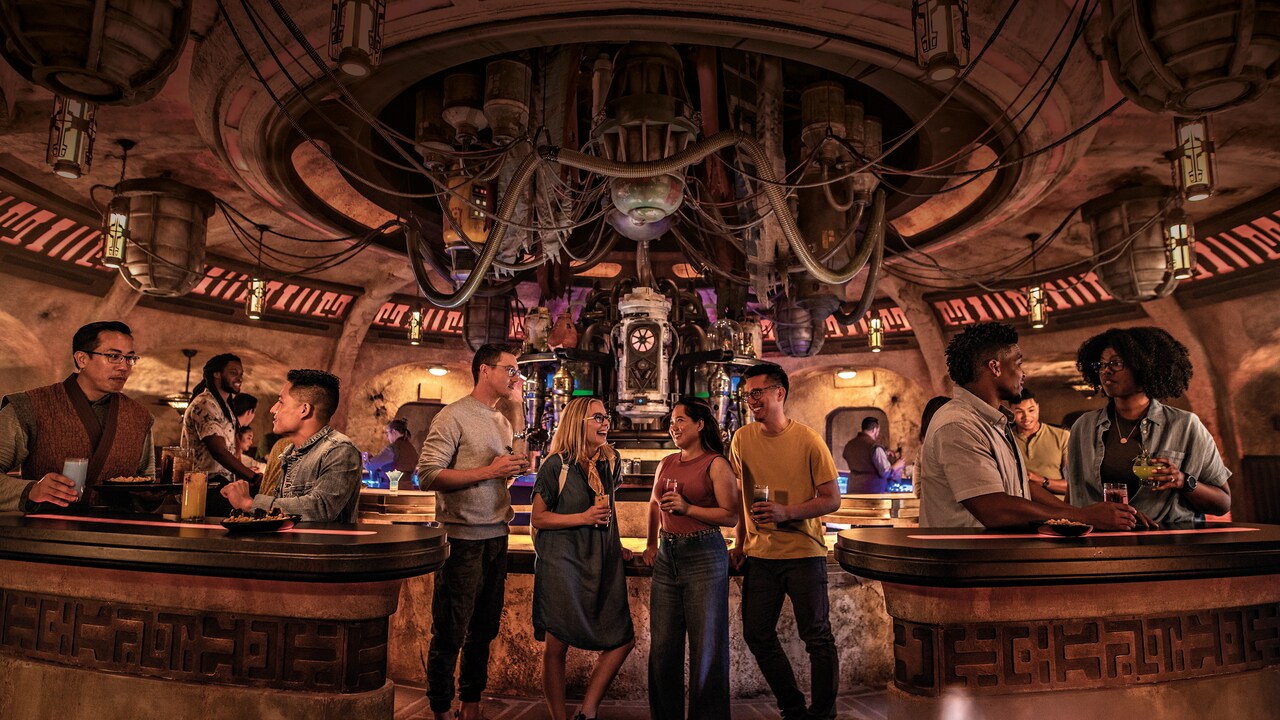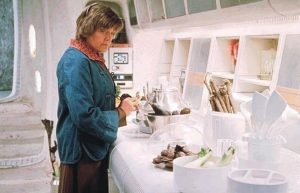I have a bad habit lately of not talking about what I'm doing with Psi-Wars. This is partially because I'm busy with several different side-projects and I often get interrupted by kids and life in general, so I pick up a thing, make some progress on it, park it, and then come back to it later. I also find that where Psi-Wars is right now, I benefit a lot from picking at small things, like little edits to a race (the Keleni, most recently) or adding some gear here and there. This doesn't make for the exciting, focused sort of discussion like I had back back in the more "iterative" phase of Psi-Wars, and maybe I should find the discipline to return back to that, but in the meantime, this is working, so I stick with it.
But I wanted to at least add something to this blog, so people don't get the sense that Psi-Wars is dead, so perhaps I should just do a journal whenever I run across something interesting, or I want to talk about what I'm working on. For today, I wanted to bring up culture, especially day-to-day life.
With the coming Monster Hunter Psi-Wars game (which I'm far too slow on, frankly) set very deeply in the Umbral Rim, I've found myself trying to articulate what "Lithian" culture is like, but to really understand it, to explain how it's different, I have to explain what it's different from, which means tackling the core culture of Psi-Wars, which I've been calling "Galactic Culture" but that's such a vague name I may change it to be "Federation Remnant" as it's really the culture of the Empire and the Alliance, aka humanity (plus a few minor aliens that don't have a culture of their own). And man, did I underestimate the scale of that project.
I discussed in Iteration 5 the idea of social distancing mechanics, the idea that you can add a few small elements to show how unique and different something is, and I still stand by the value of that, but there's an implicit assumption in that description, which is that everything you don't describe is not worth describing. In a lot of cases, this is true. If I say "In the World of Darkness, set in Modern New York, vampires go to secret bars that serve blood instead of wine," you implicitly understand what a bar is and what it looks like. You expect it to be darkly lit, with some stools near a bar, perhaps some tables, perhaps some people playing pool, people standing or sitting and chatting while enjoying their drinks, and that there's probably a bar tender you can talk to. I don't need to tell you these things. All I need to tell you is that there are secret vampire bars that serve blood, and you get the rest on your own, for free. Fantasy works this way too, to a slightly lesser extent. If I say that the Kingdom of Luritania is a mediterranean kingdom where people wear togas and they have temples to Ishtar, the seductive warrior, Morrigan, the Witch-Queen of the Wilds, and Juno, the goddess of Hearth and Home, you have a bit of a view, and you might want to know more, but you can guess there are blacksmiths and that it looks something like a D&D-style polytheism and that there's a king and princesses, etc. We have a baseline we can work with, and thus we can note our divergences from that baseline.
Science Fiction, and I use that term loosely here to include space opera, lacks that assumed baseline, because there are so many possibilities that people can do. When you go to sleep in a sci-fi setting, what are you sleeping in? "A bed" you might say, but are you? I mean, it could be a cryopod, or this weird VR/Dreaming chamber, or on an "ultra-futon" on a spaceship bunk that responds to your comfort-needs directly. What do you eat? Just normal food? Or does the spaceship harvest spirulina and vat-grown protein mats and uses them to synthesize things that look like normal food? Or do people just munch of food-pills? Or do they have some sort of internally powered nanosymbiot system that somehow directly powers someone so they don't need food anymore? How do people keep time? Does our conception of time even make sense when we're no longer tied to the astronomical objects, like the sun and the moon, on which literally all of our time-keeping mechanisms are based on?
These are the sorts of things I find people sometimes ask questions about, and what often trips me up in new sci-fi settings that I try to get into. For example, I found Transhuman Space very frustrating in this regard, as it seemed to imply that the setting was vastly changed from what we knew today, but didn't explain exactly how. Do people still buy things with dollars in 2100? If I took a girl on a date to a diner, what would we eat? Do people even still date in THS? I don't know. I suppose in the long run it doesn't much matter, as you can run it how you want, but I still find it disorienting to not be able to ground myself even in these basic assumptions.
With Psi-Wars, I mostly want to set the reader's mind at ease. The premise is that the culture is "basically 20th century earth, reskinned magically into space." Obviously, they don't use dollars, they use credits, but they come to the same. They use a clock much like ours, for some reason, and a dating system much like ours, for some reason ("I haven't seen you in three standard years!"). People meet at space port bars, go on dates, get married, have kids, and send those kids to space school. Some of these might not be entirely realistic, but Psi-Wars isn't an entirely realistic setting anyway.
But I do find as I work on it, that there are lots of small things that pop up as necessarily different. Like what your house looks like. I don't think anyone expects to walk into a Psi-Wars kitchen and see pots and pans. They might expect to see some high tech gadgetry in there, as someone cooks some high tech food, like blue milk. What does your bunk on a ship look like? When your pilot crew is done with their mission, and your wingman invites you to join the rest of the squadron playing a game.. what sort of game do you go play? If you want to flirt with a girl and take her on a date, where do you go? If you guy to buy a blaster, what's the shop like? Even if we assume a minimum amount of detail or difference, there are still some questions that might have reasonable answers, and some of those answers will flow from the logic of the setting.
I had originally intended to set aside military tech to focus on "civilian tech" in this part of the tech cycle, and I've really found looking at these questions to be enormously useful in thinking about what sort of "civilian" tech there might be. Of course, I have no plans to write up detailed descriptions of kitchen-tech, because nobody actually cares in an Action Game, and if you end up in a fight in a Psi-Wars kitchen, I trust your GM to be able to wing it ("Are there kitchen knives in here?" "Uh, sure!" "Do they have armor divisors?" "Uh... yeah, treat them as superfine."), but do houses often have domestic robots? Probably! Does Uncle Lars drive a repulsorlift car? Probably! If Uncle Lars decides to rip off a bank, can he do that? What does that look like? And when he's trying to get away in his getaway repulsorlift car, how are the space cops going to stop him?
I also find that looking at "daily life" in Psi-Wars is helping to expand the idea of the "Humble Origins" background nicely. I begin to see what sorts of jobs or background one might have in the setting, and these begin to collect into templates or lenses that I can offer, some of which are nice and fit neatly into mini-niches appropriate for "sidekick" templates that blur the line between an uninteresting NPC and an Action Hero, like a mechanic or a doctor.
So this exploration is providing unexpected dividends, but also taking more time than I expected or had hoped. Thus, you'll doubtless see some more cultural issues spilling out as I work on them, though hopefully I can keep the tedium to a minim.


No comments:
Post a Comment
Note: Only a member of this blog may post a comment.